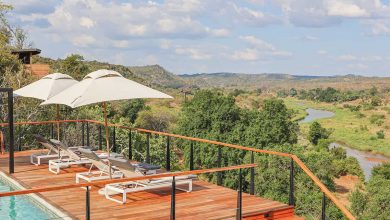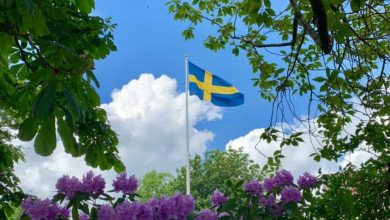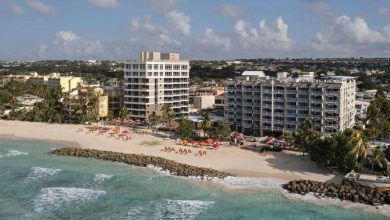Spice up your life – Zanzibar
/ 2023-02-05 12:01:36
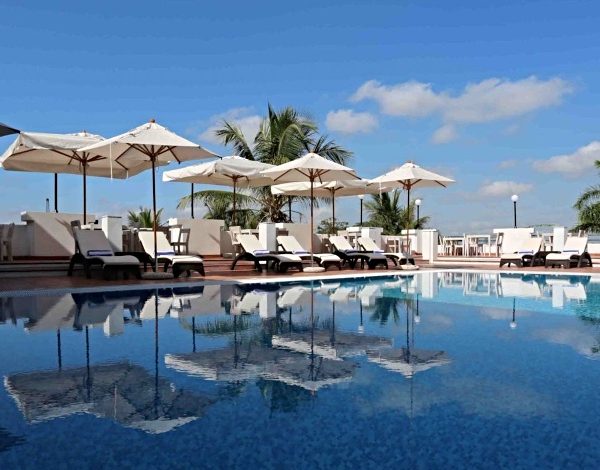
Diplomat.Today
Sarah Kingdom
2023-02-05 12:01:36
——————————————-
Located off the coast of Tanzania and washed by the warm, clear waters of the Indian Ocean, Zanzibar is a tropical archipelago made up of several scattered islands, the largest two of which are Unguja (Zanzibar Island) and Pemba. Despite its sinister slave-trading past, the name Zanzibar today conjures up images of spice markets, palm-fringed beaches and white-sailed dhows on a turquoise sea, all kissed by the spice-laden East African trade winds – and thankfully the reality doesn’t disappoint.
Our vacation actually started even before we got to the island. After a long day of travel and several delayed flights, we reached Dar es Salaam, once a fishing village, which has grown into Tanzania’s largest city, financial center and commercial port on the Indian Ocean. Despite its name, which means ‘Abode of Peace’ in Arabic, Dar es Salaam is a large and hectic city. The drive from the airport was somewhat hair-raising, our driver had us on the edge of our seats with his erratic lane-changing maneuvers, but when we pulled up to the door of The Slipway Hotel with screeching tires, our holiday really began. A late seafood dinner, wood-fired pizzas and huge sharing platters, on the boardwalk, right by the sea, was the perfect start.
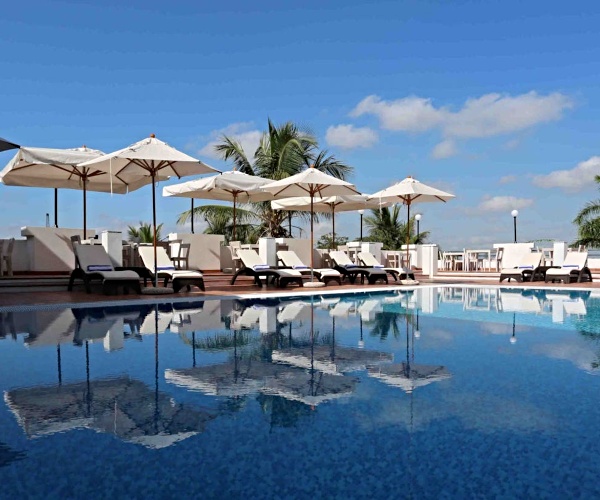
Overlooking the Indian Ocean, on the exclusive Msasini Peninsula just north of Dar town center, The Slipway started out as a shipyard but is now much more than just a hotel. Set in an attractive seaside complex, the restaurants, cafes and cocktail bars are bustling at weekends and the souk and galleries are ideal for last-minute souvenirs. And with the palm trees swaying in the breeze, fishermen wandering up and down the beach, and that signature salty sea air in the air, you’d think you’re not in a city at all. This hidden gem is an excellent option for a stopover in the city and its relaxed atmosphere attracts well-to-do locals and expats as well as tourists.
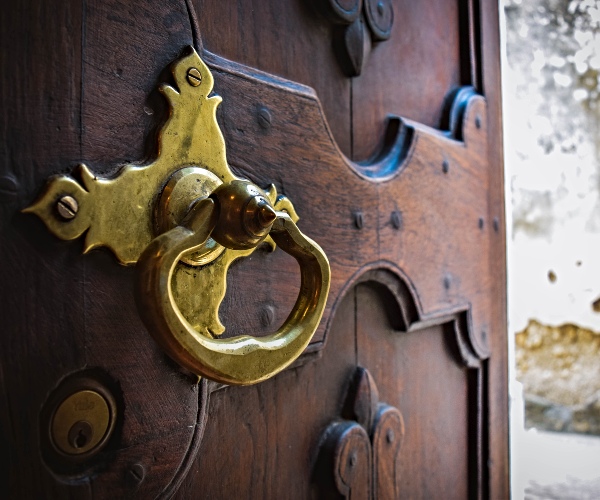
We left Dar es Salaam behind and headed for the laid-back paradise of Zanzibar. The island’s history has been shaped by hundreds of years of trade in spices – cloves, nutmeg, cinnamon, saffron, vanilla and more – with merchants arriving here by ship from Europe, the Middle East and even China.
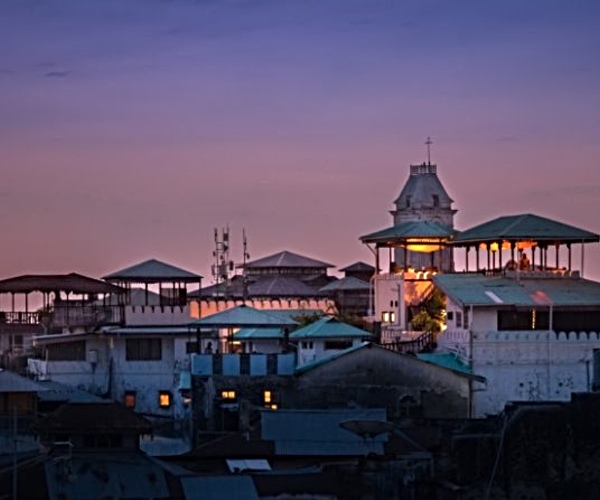
A visit to Zanzibar is not complete without a visit to Stone Town. Discover its treasures – mosques and colorful backstreets, winding streets and cobbled streets, tasty food and friendly people. Explore the maze of streets – from the old slave market to the fairytale Sultan’s Palace, the House of Wonders and The Old Dispensary, there’s a lot of history to absorb. Shop for clothes, fabrics, artwork in the narrow alleys and oriental spices at Darajani Market, or watch the local fishermen bring in their catch.
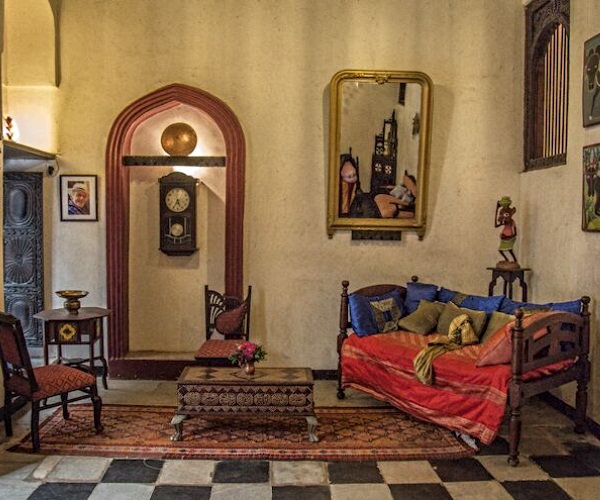
Take an early morning stroll through the narrow, whitewashed alleys of Stone Town, past ornate wooden doors. Just before sunset, on the corner of the night market, guys compete with each other during crazy free dives from the edge of the wall and into the bay. At sunset, in the Forodhani Gardens on the waterfront, a night market pops up where you can watch chefs grilling meat, octopus tentacles, lobster, crayfish, squid and more. Sugarcane juice stalls squeeze among Zanzibari Pizza vendors.
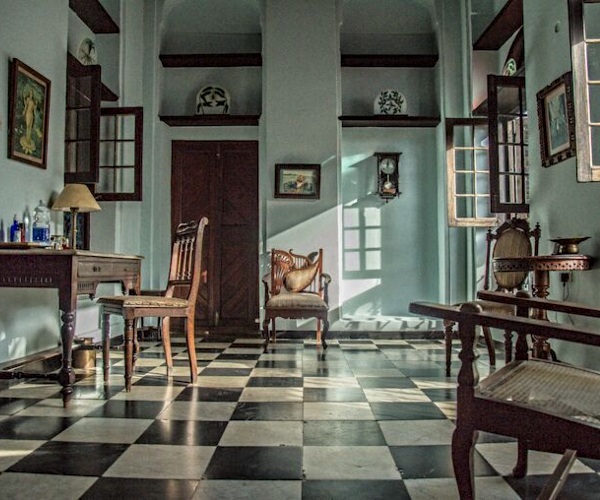
Later in the evening, head to one of the rooftop restaurants in the heart of Stone Town, such as the Emerson on Hurumzi, once the home of Tharia Topan, one of the wealthiest men in the Swahili Empire and a venerable grande dame of restored palaces. Dinner here at the Tea House Restaurant, with its rooftop vantage point and 360⁰ view of Stone Town is a treat. Dinner is a three-course set meal celebrating Zanzibar cuisine, combining the flavors of Swahili, Persian and Omani influences and accompanied by traditional Taarab music and singing by musicians from the Dhow Country Music Academy. The exotic hotel is also a perfect place to stay in Stone Town with its elegant antique furniture and unique style.
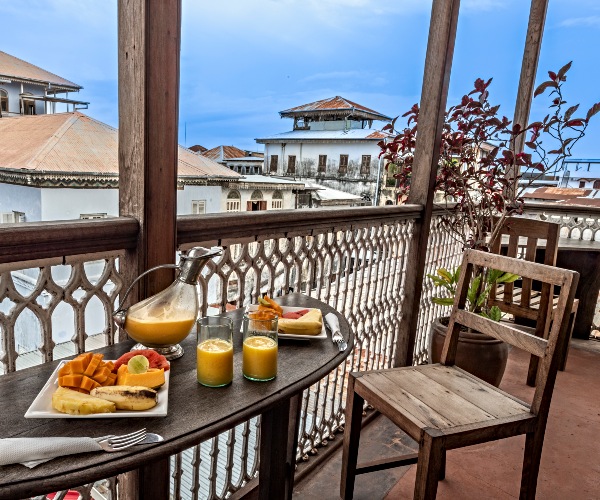
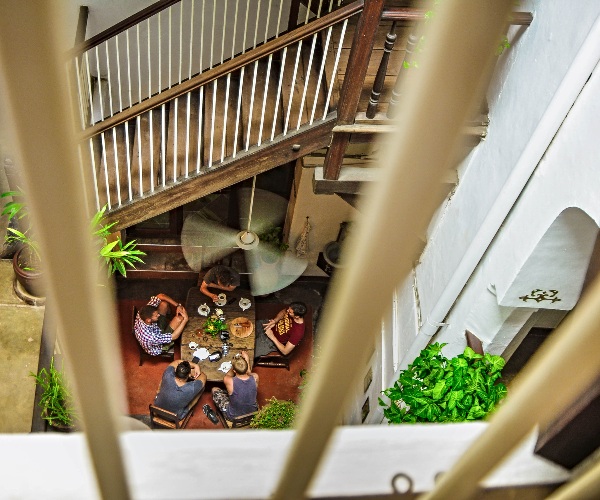
IMPORTANT ANNOUNCEMENT:
If you are reading this article anywhere other than A Luxury Travel Blog, chances are this content has been stolen without permission.
Please note the web address above and contact A Luxury Travel Blog to notify them of this issue.
Thank you for helping us fight content theft.
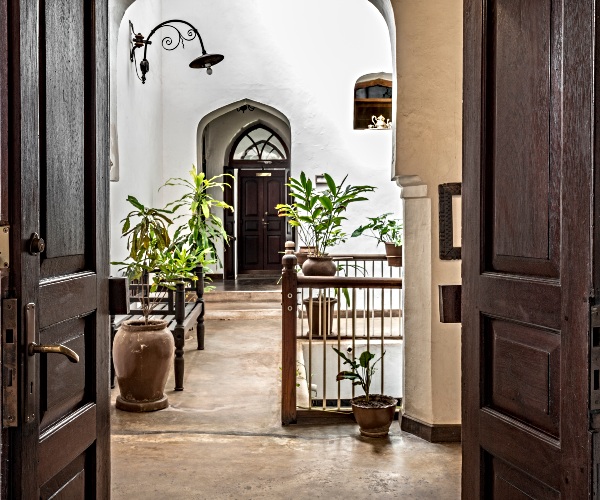
Another classy, classic place to stay in Stone Town is the fabulous Zanzibar Coffee House, offering a touch of magic and romance in an authentic Arabian house deep in the heart of Stone Town. This is one of the oldest buildings in Zanzibar, built in 1885, with many original architectural details and carefully renovated. The end result is a higgledy-piggledy layout, spread over several floors, full of character. The photogenic top floor, with its wraparound view of Stone Town’s rooftops, is a big draw – for breakfast, grab a table on the balcony amongst the flowering plants, or inside, with arched doorways on each facade that open to the wind. The view is beautiful, and like most Stone Town hotels, you’re likely to be awakened early by the eerie call to prayer from a nearby mosque.
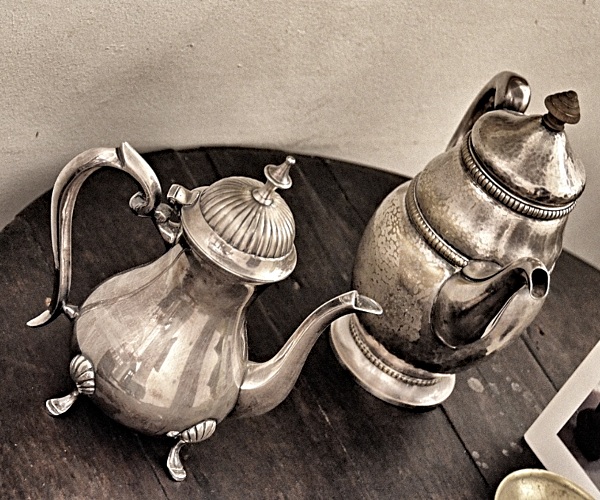
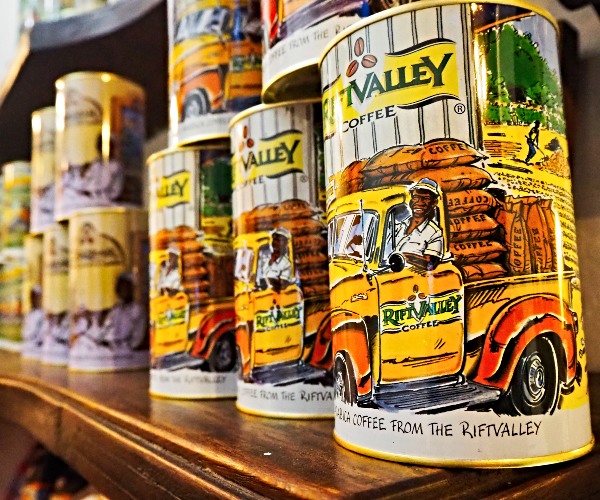
All of Stone Town’s main attractions are within walking distance of the Coffee House, and on the ground floor of the hotel is a café serving a simple snack menu of soups, salads, sandwiches, wraps and excellent freshly baked pastries and cakes, all washed down with delicious Tanzanian coffee, harvested from their sister farm Utengule, roasted on site and expertly brewed. The cafe is extremely popular with visitors from all over Stone Town.
Heading north, an hour’s drive from Stone Town, we reach the beaches of Nungwi. There is a relaxed atmosphere here, as you walk with your toes in the sand on the beach to the lighthouse or watch the local ladies forage for shellfish in the shallows. In the evening, Nungwi harbor is filled with dozens of fishing dhows with billowing ivory sails, cruising through the cobalt blue waters towards the setting sun, for a night of sea fishing.
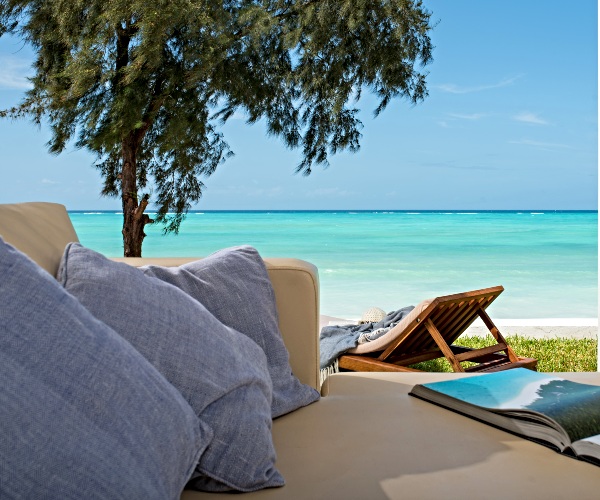
We stayed in the fantastically located Nungwi Dreams. The Indian Ocean is beautiful here, the white sand coast is fringed with turquoise that changes to emerald and inky blue where the water deepens. Sunrise on the beach was sensational, watching the sky change from gray to shades of light pink and then orange, as the sun rose over the horizon.
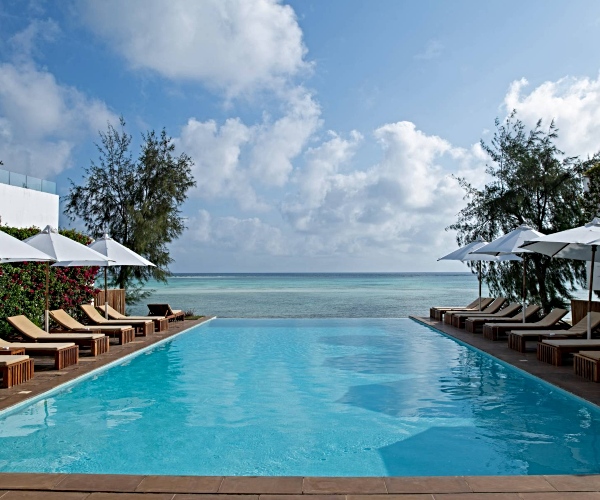
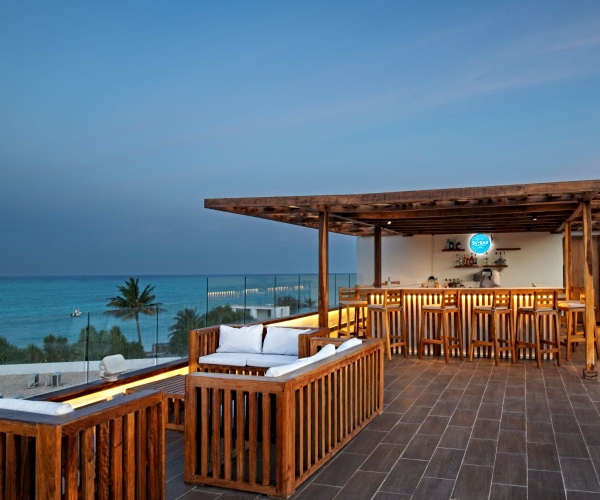
A rooftop ‘sky bar’ for colorful sunset cocktails and dinners accompanied by lively local musicians were unforgettable. With 56 rooms and 1 family villa, Nungwi Dreams is definitely a ‘resort style’ hotel and has all the comforts you would expect from a luxury resort, while still being small enough to be friendly and personal. Our rooms were modern, sleek and bright, with stunning ocean views, and with two pools to swim in, plus the beautiful warm ocean, we were spoiled for choice. This is Zanzibar’s quintessential beach holiday destination, the ideal place for your dream escape.
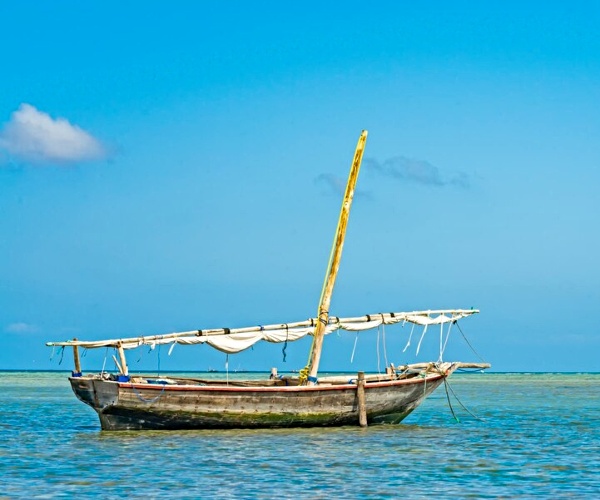
With its pearly white beaches, palm trees and mysterious Arabian flair, the island captures the imagination, and being close to the equator, Zanzibar and sunny days go hand in hand – what more could you want?
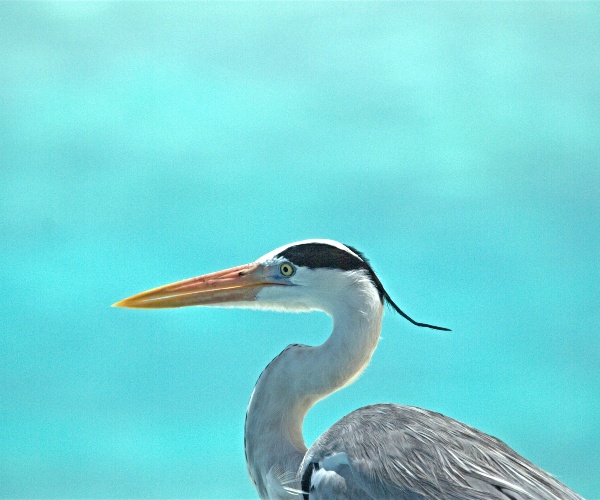
Did you know this about Zanzibar…
- The people of Zanzibar are known as Zanzibaris and their mother tongue is Kiswahili, commonly known internationally as Swahili.
- Popularly known as the ‘spice islands’, Zanzibar was once the world’s largest producer of cloves and its history was heavily influenced by this activity.
- Zanzibar is located about 30 km off the coast of mainland Tanzania in the Indian Ocean.
- Zanzibar is actually an archipelago with the two main islands of Zanzibar (also known as Unguja, the bigger one) and Pemba (the smaller of the two).
- Zanzibar was incorporated into the United Republic of Tanzania in 1964.
- Zanzibar has its own democratically elected president and government that manage the internal affairs of the islands.
- Zanzibar’s Stone Town has 50 mosques, 20 churches and 4 Hindu temples.
- The House of Wonders is one of the first buildings in East Africa to have electricity and an elevator, and is Stone Town’s oldest surviving building.
- Zanzibar’s oldest surviving building is the 11th-century mosque in Kizimkazi.
- The name Swahili comes from the Arabic word sawahil which means ‘coast’.
- The rare Kirk’s Red Colobus monkey is only found on Zanzibar, specifically Jozani Forest.
- The shortest war in history was fought in Zanzibar in 1896. On August 25, Sultan Hamid bin Thuwaini died, and two hours later a usurper broke into the palace and declared himself ruler. In a show of Victorian Gunboat Diplomacy, the Royal Navy was asked to deport him. At exactly 9 o’clock on the 27th, three warships opened fire and in 45 minutes laid the palace in ruins and laid the usurper down. The bombing has since been called the “shortest war in history” as verified by the Guinness Book of Records.
——————————————-
